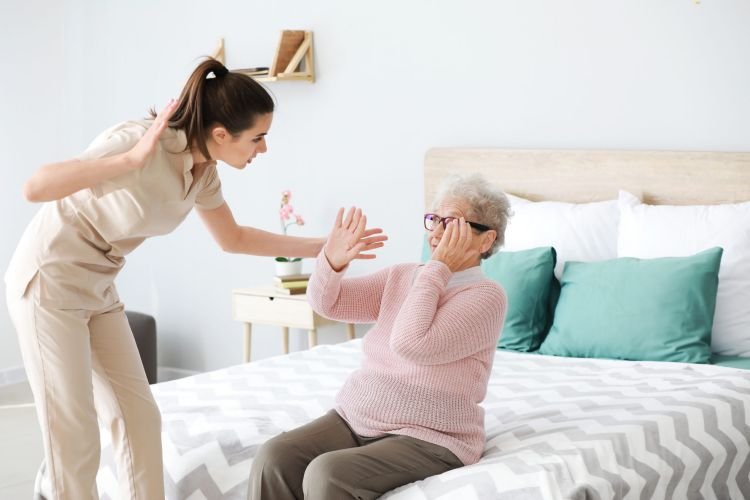 In the sanctity of spaces meant for care and recovery, the occurrence of abuse is a harsh incongruity that shadows the noble objective of nursing homes. Across Louisville, stories surface of residents who, instead of receiving care, face a spectrum of abuse ranging from neglect to physical harm. These instances, stark violations of human dignity, call for more than passive concern; they necessitate active, informed intervention. The fight against this unsettling trend is not a solitary one; it’s a collective endeavor involving families, the community, and notably, the legal fraternity.
In the sanctity of spaces meant for care and recovery, the occurrence of abuse is a harsh incongruity that shadows the noble objective of nursing homes. Across Louisville, stories surface of residents who, instead of receiving care, face a spectrum of abuse ranging from neglect to physical harm. These instances, stark violations of human dignity, call for more than passive concern; they necessitate active, informed intervention. The fight against this unsettling trend is not a solitary one; it’s a collective endeavor involving families, the community, and notably, the legal fraternity.
To ensure safety and justice for the victims, it becomes imperative to engage with a nursing home abuse attorney in Louisville. These specialized legal professionals are equipped with the necessary expertise and deep understanding of related laws to navigate the complex journey from identifying abuse to securing justice. Their role is instrumental in not only bringing individual cases to light but also in spearheading a change in the systemic complacency that sometimes allows such mistreatment to persist.
Unveiling the Types of Abuse
Awareness begins with understanding the multifaceted nature of abuse within nursing homes. These detrimental acts, whether physical, emotional, financial or through neglect, pose a severe threat to the well-being of residents. Highlighting the characteristics of each abuse type is essential for early detection and prevention:
- Physical Abuse: This involves deliberate actions leading to pain, injury, or impairment. Signs include but are not limited to bruises, scars, sprains, or even more serious unexplained injuries. It is crucial to note changes in behavior, such as fear around certain staff members.
- Emotional or Psychological Abuse: Often more challenging to detect, this non-physical mistreatment can cause immense mental suffering. Indicators involve changes in mood or behavior, such as withdrawal, depression, or anxiety. Actions include intimidation through yelling or threats, humiliation, ridicule, or consistent dismissal of the elder’s thoughts or feelings.
- Neglect: This passive form of abuse happens when a caregiver’s obligations to provide essential services are ignored. Warning signs include unsanitary living conditions, bedsores, malnutrition, dehydration, and a lack of personal hygiene. Medical neglect, a subset, refers to the lack of care regarding existing health conditions or medications.
- Financial Exploitation: Here, an individual’s funds, properties, or assets are improperly or illegally used. Unusual banking activities, sudden changes in a will or financial documents, disappearance of valuable items, or unexplained shortage of funds are all red flags.
- Sexual Abuse: This involves non-consensual sexual contact of any kind. Physical signs might include unexplained genital infections, bruises in private areas, and torn or bloody underclothing, while emotional signs could be withdrawal or fearfulness, especially around certain individuals.
Legal Intervention A Beacon of Hope
When signs of abuse are detected, legal intervention becomes a crucial step. A nursing home abuse attorney doesn’t just serve as a legal advisor; they become the voice of the victim, articulating their plight in a manner that demands attention and action. They meticulously build cases, demonstrating the extent of abuse and showcasing the necessity for rightful compensation. Their adeptness in handling such sensitive issues ensures that victims and their families are compassionately guided towards achieving justice.
Moreover, these attorneys push for accountability, ensuring that those responsible are identified and held answerable. This process not only secures justice for the present situation but also instigates improvements in care standards, deterring future instances of similar misconduct.
Prevention: Everyone’s Responsibility
Creating a safe haven for the elderly within nursing homes is a collective effort that requires vigilance and participation from all societal sectors. Key steps in prevention include:
- Staff Training: Regular workshops and professional development sessions to ensure that all staff members are equipped with the skills to provide quality care and are aware of the legal repercussions of mistreatment.
- Regular Inspections: Scheduled and surprise checks of the facilities to monitor compliance with health, safety, and care standards, ensuring that any issues are identified and addressed promptly.
- Knowledge Empowerment: Informing residents and their families about their rights, the signs of abuse, and the appropriate steps for reporting suspicious activities or maltreatment.
- Compliance with Safety Regulations: Ensuring nursing homes adhere to established safety protocols and legal requirements, creating an environment that prioritizes resident well-being.
- Community Awareness Programs: Initiating campaigns that educate the public about elder abuse, emphasizing that such behavior is intolerable and encouraging community members to report potential abuse.
- Zero-Tolerance Policy: Implementing strict regulations within care facilities that outline clear consequences for any form of resident abuse, ensuring staff understand that violations will lead to severe disciplinary actions, including legal recourse.
Through these proactive steps, the entire community becomes a bulwark against the abuse of its most vulnerable members, asserting that the dignity and safety of the elderly are fundamental rights to be upheld at all times.
A Legal Shield Advocacy, Representation, and Resolution
The legal labyrinth confronting victims of nursing home abuse is intricate, and often clouded with high emotions and uncertainties. Here, a nursing home abuse attorney in Louisville steps in as an invaluable ally. Legally, they shoulder multiple responsibilities to streamline the pursuit of justice. They initiate by gathering evidence, which may include medical records, expert testimonies, and eyewitness accounts, meticulously piecing together the events to construct a compelling case.
These attorneys skillfully navigate the proceedings, from filing lawsuits to engaging in settlement discussions or taking the battle to court if necessary. They’re adept at negotiating with insurance companies and opposing counsel, always with an unwavering focus on the victim’s best interests. This rigorous legal advocacy is pivotal in obtaining rightful compensation for the victims and covering medical bills, emotional distress, and other damages. Furthermore, their relentless pursuit often forces nursing home facilities to confront and amend the systemic failures that allow abuse to occur.
Emotional Support Beyond Legal Counsel
The journey doesn’t end with legal resolutions; for many victims and their families, the emotional turmoil stemming from abuse lingers. Recognizing this, nursing home abuse attorneys often extend their role beyond legal confines, providing emotional support throughout the process. They exhibit empathy, offer a listening ear during moments of vulnerability, and guide clients through making informed decisions devoid of the clouding influence of high-strung emotions.
Furthermore, these attorneys often connect families with counseling professionals, support groups, and community resources dedicated to helping survivors of abuse. This holistic approach ensures that the healing process is not just legal and financial but also emotional, helping victims reclaim their peace of mind and dignity. By acknowledging the psychological aftermath of abuse, these attorneys reaffirm their commitment to the overall well-being of their clients, standing as a pillar of support in both legal and personal capacities.




